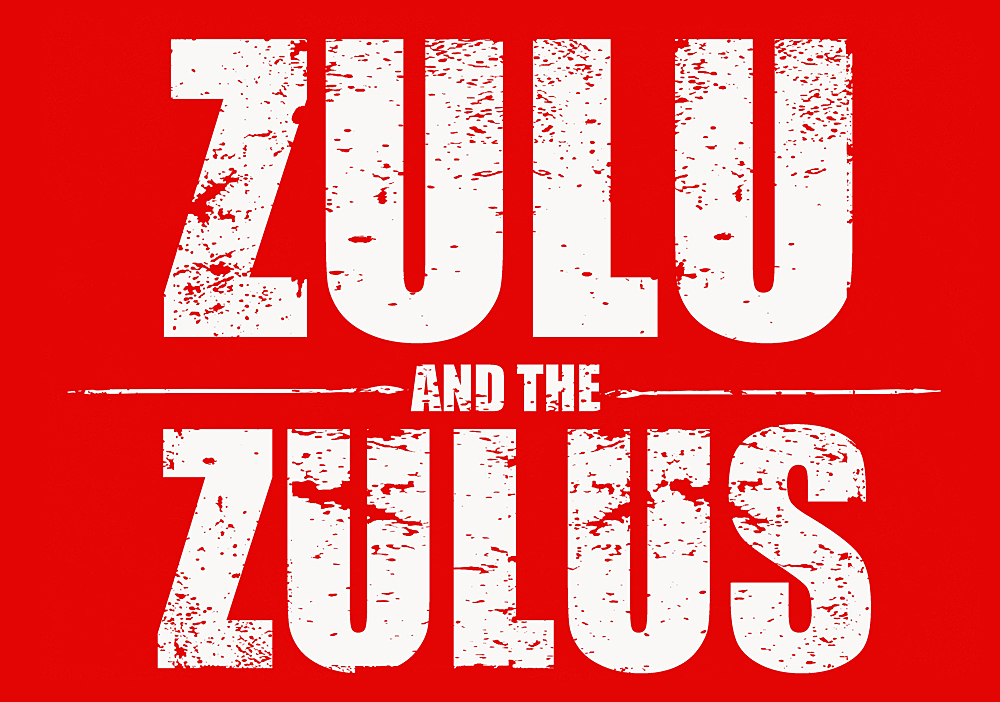

Zulu and the Zulus will be a 90-minute feature documentary to be shot in KwaZulu Natal, South Africa, about the making of the classic war film Zulu (1964), that was directed by Cy Endfield, produced by Joe Levine and starred Stanley Baker, Michael Caine and Jack Hawkins.
British filmmaker / director Henry Coleman is the sole owner of the only print known to exist of the making of Zulu footage shot in Natal in 1963.
It contains 26 minutes of unique black & white behind the scenes footage showing cast and crew at work and play while making one of the most iconic and loved war films of all time.
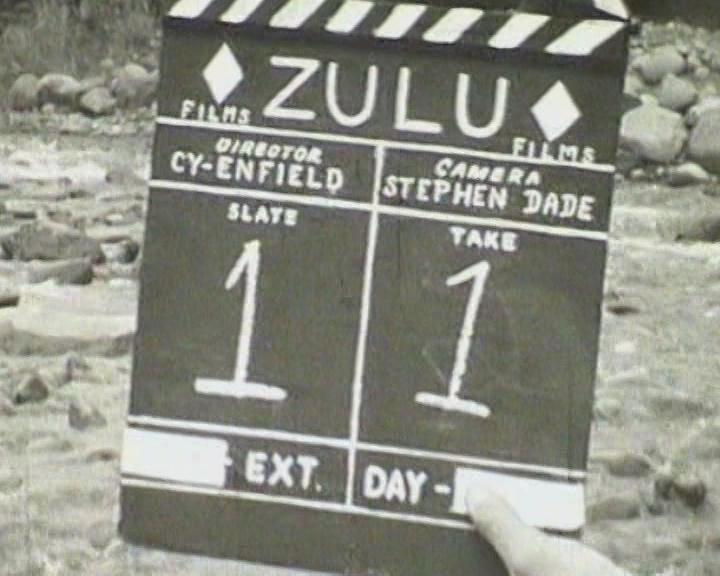
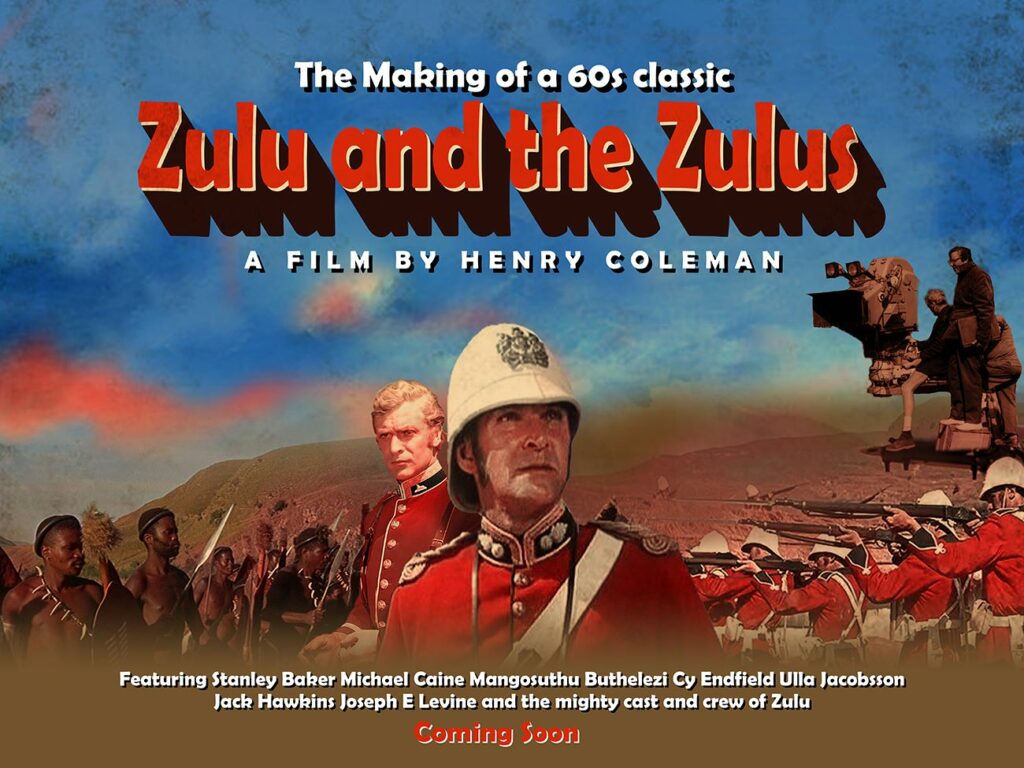
Zulu and the Zulus tells the behind the scenes story of the classic British movie ‘ZULU’. It will begin with a montage of classic and modern footage taken of the locations used on the original production – aerial shots of the Drakensburg Mountains, Tugela River and the Royal Natal National Park where shooting took place in March to May 1963. There will be a narrated voice-over throughout the film.
Historically many modern rural Zulu people had no access to cinemas or and no electricity in their homes, therefore many would have not seen the film.
The production team will travel out to remote parts of KwaZulu and screen the film either in huts or on a portable screen outdoors (using a generator, DVD player and screen). They will film the Zulu people watching the film, then interview them and draw out their stories on the making of the film in 1963.
Some of the Zulus saw the rushes at special screenings organised by star & producer Stanley Baker, however many have never seen the film since and others have never seen it at all.
”Zulu and the Zulus’ will examine the making of this film, visiting the locations in Natal where the film was shot. A ”Then and Now’ location sequence will be filmed, as well as going to the original battle site at Rorkes Drift.
It will be a truly fascinating journey and a incredible visual experience, with Zulu warriors watching themselves & their parents playing their ancestors. His Excellency Chief Buthelezi, a royal Zulu, appeared in “Zulu” playing the role of his own Great Grandfather (Cetewayo). He had agreed to fully participate in this project and had given us his full and enthusiastic support before he passed away. His private office still supports the film.
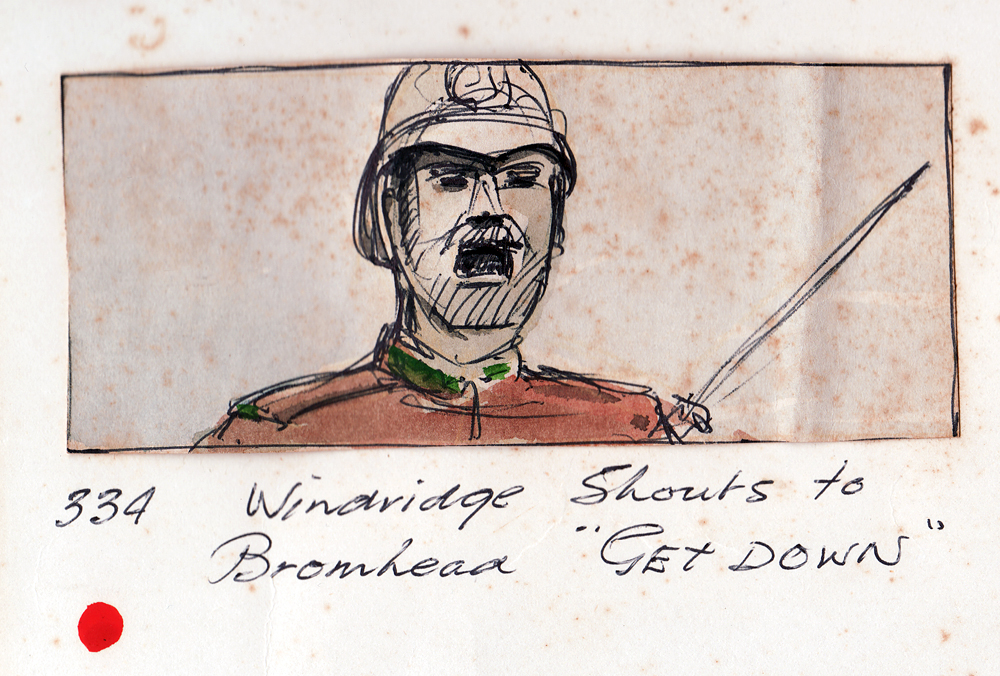
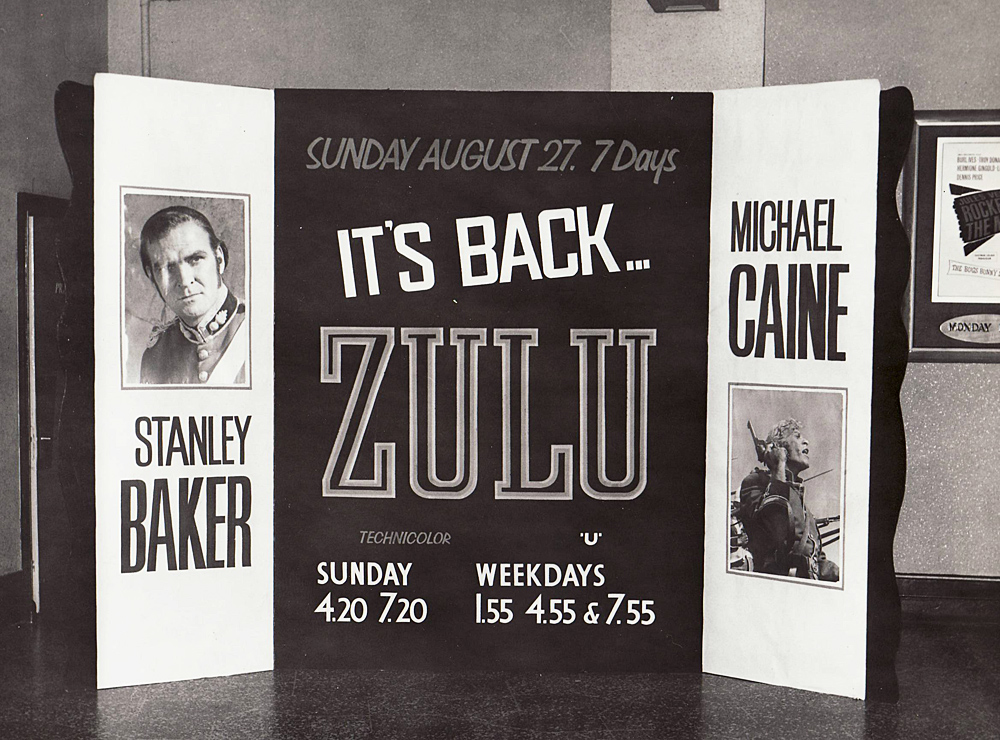
Everyone knows the film, its iconic set pieces and the lead European actors, however to date no-one has ever spoken to the hundreds of Zulu warriors who took part in the film.
This is a unique and rare opportunity to get the Zulu’s point of view on a classic film named after them.
There will be voices we’ve never heard before – stories we’ve never even imagined, illustrated, intercut with the rare footage of the making of Zulu.
We shall also explore the shooting of this film under Apartheid conditions which existed in South Africa at the time.
At the heart of Zulu and the Zulus is 26 minutes of never-seen before “making of’ footage”. The original 16mm silent footage has been painstakingly restored in a top post-production house in London. This unique footage, not only features the film’s ‘famous’ cast and crew on set, it also includes the building of key sets in KwaZulu, Natal as well as costume design, creation and fitting, stunt work, battle scenes and much much more.
Most importantly it is an historical record detailing the extent of contribution from the local community in bringing Zulu to life. The producers have also found, and gained exclusive access to another 40 minutes of colour home movie footage that was shot on set, giving us a unique insight into the production of Zulu.
Producers will be interviewing European cast and crew for the first time. We will hear stories from the tribal ZULU actors, stuntmen & crew who worked behind the scenes. Film production stories about what it meant to the Zulus, both then and now will be told along with how much the film’s legacy means to the Zulus and film fans worldwide today.
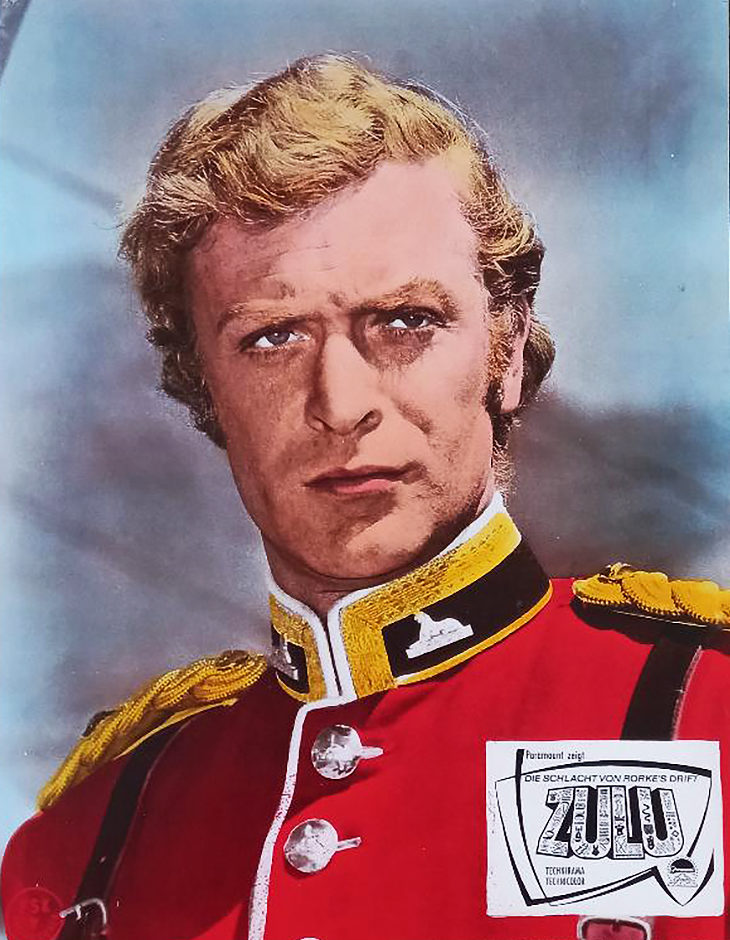
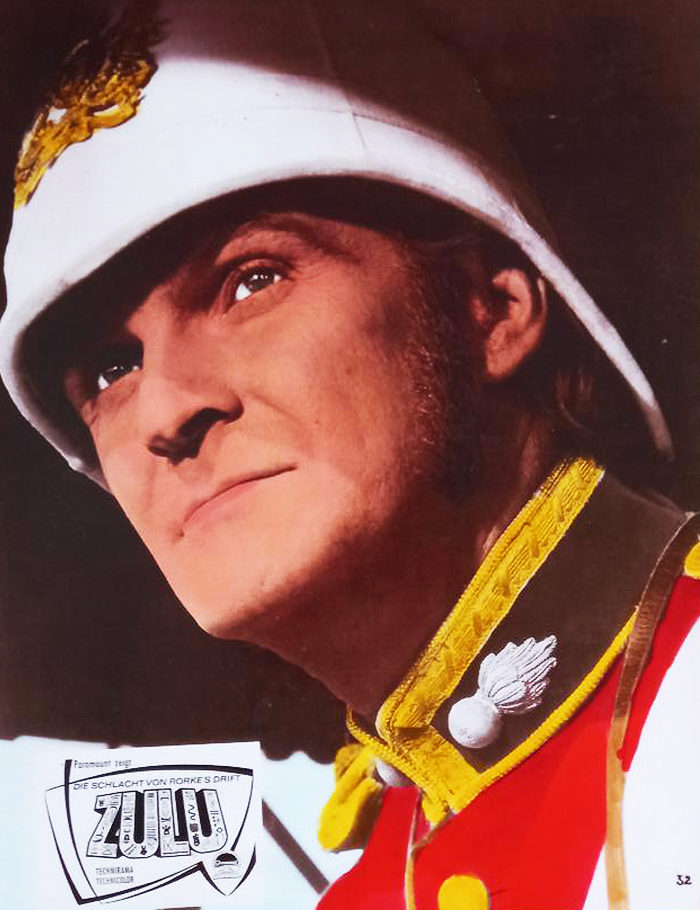
Zulu and the Zulus will feature original unseen ‘making of’ footage in colour and black and white shot on the locations in Kwa-Zulu Natal in 1963.
The film documentary will include historical interviews with Michael Caine and Stanley Baker, footage from the New York premiere in 1964 and modern interviews with key cast and crew.
The producers own all the original hand painted storyboards that were used on set in 1963, and we will examine how these storyboards were interpreted in the final film.
The filmmakers and project consultants together own one of the largest collections of still images and film memorabilia from around the world, which we shall be accessed for Zulu and the Zulus.
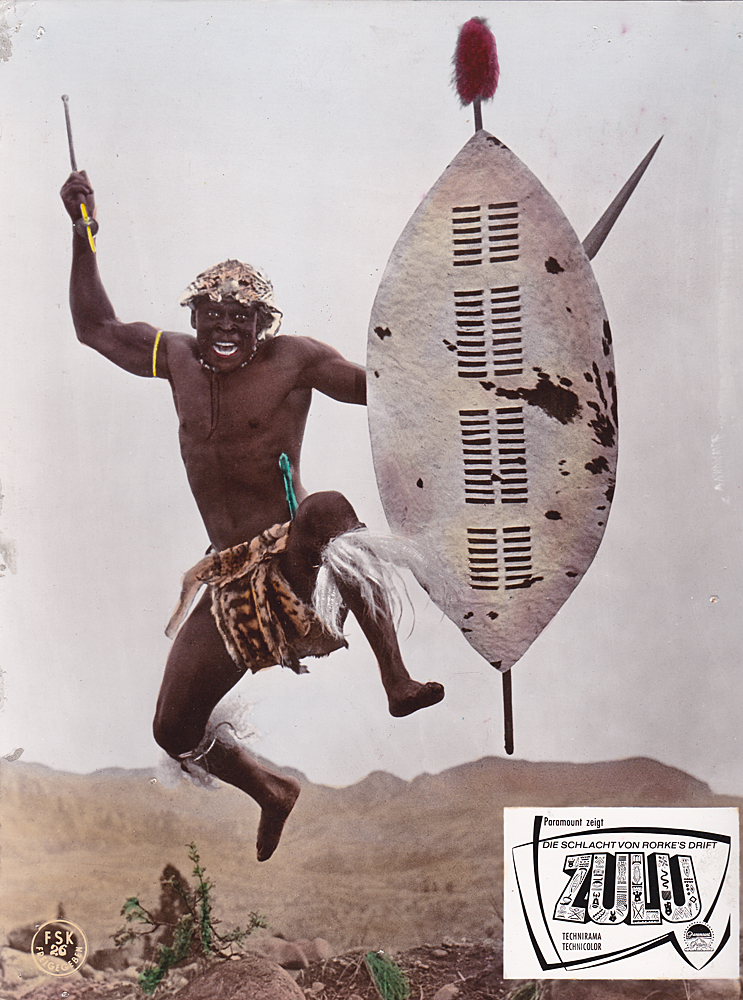
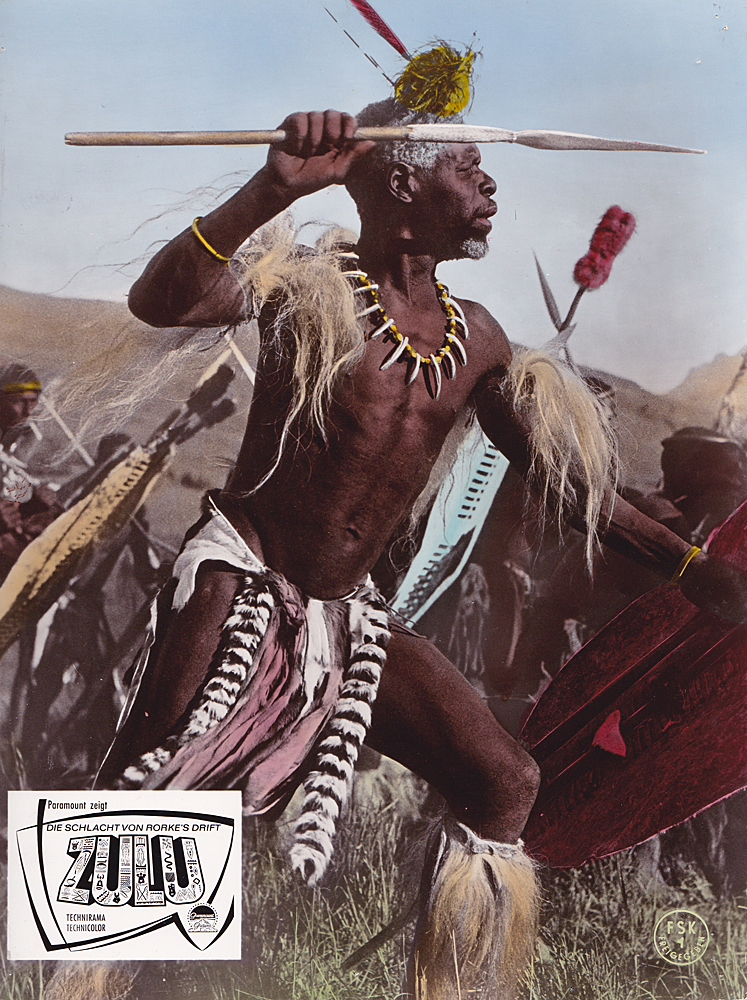
For several weeks in 1963, a unique community was created at the foot of the Drakensberg Mountains. It was a thousands-strong community of actors, film crew and extras. What made it unique was that, at the height of apartheid, it was a community of both black and white, where everyone was respected and everyone treated one another as equals. There was no fuss about race, no discrimination, no bigotry. It was simply a community of people working together to recreate a part of history that held tremendous meaning for all of them.
“Zulu” has become an icon in cinematographic history. It is through this film that the Zulu warrior became an archetype of fearlessness. The thousands of Zulus who were employed to play the part of the regiments were not just extras. They were re-enacting the deeds and glories of their own grandfathers. For the Zulu Nation, the memories evoked by this film are recent in our national consciousness, even 136 years later. They are part of the cultural narrative we grew up with and part of what shaped us as a nation.
I commend Mr Henry Coleman for wanting to tell this side of the making of “Zulu”, from the perspective of the Zulu extras. It will add to the rich treasury of cinematographic history, but no doubt also to the world’s understanding of one the greatest African nations. I look forward to seeing the ‘lost footage’ and I wish him
every success with this project.
British born Henry Coleman grew up in Johannesburg, South Africa. He became fascinated with the 1964 film Zulu after his father took him and his younger brothers to the Rorke’s Drift and Isandlwana battlefields in the late 1970s where they spent a week exploring the sites.
On returning to Johannesburg , Coleman hired a 16mm copy of the film and viewed it at home on the lounge wall on his Bell and Howell projector – 3 times that weekend. He subsequently finally managed to buy his own copy of the film which he screened for himself every couple of months. Zulu was a huge influence for Coleman in wanting to be a filmmaker.
On his return to the UK in the 1980s he began to collect Zulu film memorabilia, and over the years, has amassed a huge and rare collection, which includes original shooting and editing scripts, the only known original storyboards to be used in the production (now included in Sheldon Hall’s book Zulu With Some Guts Behind It – pub Nov 2014 – Tomahawk Press), posters and stills from around the world, as well as acquiring the only known copy on the making of Zulu – 26 minutes of cinema history shot in Natal on 16mm in 1963.
In the past, Coleman has been the organiser and curator of the official and only public exhibition ever mounted on the film – it was open 6 months at the London Film Museum on the South Bank, and 6 months in the military museum at Cardiff Castle.
He has been passionate about getting Zulu and the Zulus to the screen – he has already interviewed numerous cast and crew members on camera, has written support from Chief Magosuthu Buthelezi, and has received a written Good Luck with the Project letter from HRH Prince Harry, who counts Zulu amongst his favourite films.
His past filmed credits as director include short films and documentaries (including on the Zulu 50th Anniversary Royal Premiere in Leicester Square in 2014), as well as music videos and live gigs for Adam Ant, Rick Wakeman and Leo Sayer.
As an actor in the 1980’s Glyn Baker was a member of the Olivier Company at the NT for 3 years, also appearing in films that included the Wild Geese, The Living Daylights as 002, and Star Wars Return of The Jedi.
Breaking from acting he established the renown Cobden Club venue in Notting Hill, then branched out to focus on restaurant and venue design. Film and theatre writing is now the mainstay of his career.
Glyn and brother Martin were present on the Zulu set in Kwa-Zulu Natal in 1963. .
Martin Baker is an international award-winning producer and director who has a track record of making ground-breaking music videos, concert films, documentaries and biography films on legendary blues, rock and soul artists.
Martin and brother Glyn were present on the Zulu set in Kwa-Zulu Natal in 1963.
Sheldon has been teaching film at Sheffield Hallam since 1997. Before that he was a freelance film journalist and lecturer based in the North East of England. His particular interests are in American and British film history.
There have been a number of recurrent themes in his research to date: the history of the Hollywood film industry, particularly in the postwar era; widescreen technologies and aesthetics; the phenomenon of the ‘blockbuster’; the historical epic and the ‘heritage’ film; the British cinema and British film criticism; film distribution, exhibition and promotion as industrial practices; and the complex relationships between cinema as an industry and film as an aesthetic form. He is currently researching the historical relationship between television and the film industry through a study of the showing of feature films on British television.
Sheldon is the author of Zulu: With Some Guts Behind It – (2014 – Tomahawk Press) – a comprehensive study into the 1964 film Zulu.
Ian Knight, BA, FRGS is a historian, author, battlefield guide and artefacts specialist internationally regarded as a leading authority on the nineteenth-century history of the Zulu Kingdom, and in particular the Anglo-Zulu War of 1879.
He has a degree in Afro-Caribbean Studies from the University of Kent and has been researching and writing for more than thirty years. He has published over forty books and monographs, the majority of them on Zulu history and the rest on other nineteenth-century British colonial campaigns.
Ian is a ‘Life Time’s Achievement’ winner of the Anglo-Zulu War Historical Society’s Prince Mangosuthu Buthelezi Award for his work on Zulu history. Ian’s book, The National Army Museum Book of the Zulu War was joint winner of the Royal United Services’ Institute Award for ‘Best Military History Book’. He is an Honorary Research Associate of the KwaZulu-Natal Museum in Pietermaritzburg.
Blake became a successful Producer’s Rep in Hollywood and New York following his early training at Shepperton Studios for British lion films controlled by the Boulting Brothers. Following a stint at ABC TV New York he founded Cinema Shares International specialising in arranging finance and distribution.
He has attended over 40 Cannes Festivals, AFMs, Mifed, Mips. Blake’s distinguished client list includes Ismail Merchant and James Ivory (ROSELAND – one of Christopher Walken’s first}, Carolco’s Andrew Vajna & Mario Kassar (FOXBAT), Robert Rehme (MUTUAL FILMS), Dennis Hopper (OUT OF THE BLUE), Davis & Panzer (STEEL), Emmanuel Wolf (FRIGHT), Kushner-Locke (THE HILLS HAVE EYES), Jeremy Thomas (MAD DOG MORGAN), Edgar Lansbury (CAT & THE CANARY), Philippe Mora (DEATH OF A SOLDIER), Zalman King (BLUE SUNSHINE), Mark Lester (CLASS OF 1994), John Quested (THE STUD, THE BITCH), Pierre David (David Cronenberg’s 1981 SCANNERS), Wolfgang Glattes (CROSS OF IRON 2), Lyman Dayton (WHERE THE RED FERN GROWS, SEVEN ALONE), John Daly (HOWLING II), Raju Patel (IDI AMIN) and Larry Spangler (CHANEL).
A veteran of the British Film Industry, Joseph cut his teeth working at the Hollywood Studios mainly on the distribution side. Companies included Paramount, Fox, Warners and United Artists. He gained experience in sales, marketing and promotion. This was followed working for two mini majors Hemdale and ITC where he gained experience in production and acquisition.
He started Blue Dolphin in 1980 and from the beginning was releasing titles from Studios such as Paramount, Columbia and Warners. These included Demi Moore in The Butcher’s Wife, Brad Pitt in Cool World, Jack Nicholson in The Two Jakes, in addition to Blue Dolphin’s own acquisitions which included Peter Jackson’s first feature Bad Taste, Koyaanisqatsi, Edgar Wright’s Fistful of Fingers, Mark Romanek’s first feature Static and many other independent features, music films and documentaries.
As producer, his first feature was the Liverpool set Blonde Fist. He was invited to be a director of an EIS company, UKFTVplc. In this capacity he was an Executive Producer on the Oscar winning film Tsotsi. He has also produced a 26 part one hour action adventure series Dark Knight, with Channel 5 (UK) and TVNZ (New Zealand).
Recently he has produced a feature documentary on Patrick Mcgoohan and the ground breaking show The Prisoner. And a $15million stop motion animation comedy/horror Chuck Steel Night of the Trampires which opened nationwide on 29th.October 2021.
Joseph has a good background in releasing Documentaries, which have included many music docs with Bob Dylan, Neil Young, The Cure, Woodstock directors and many others. Recent releases have been Rahm, and Hero, inspired by the extraordinary life and times of Ulrich Cross. This is a drama doc that is enjoying a very successful theatrical release.